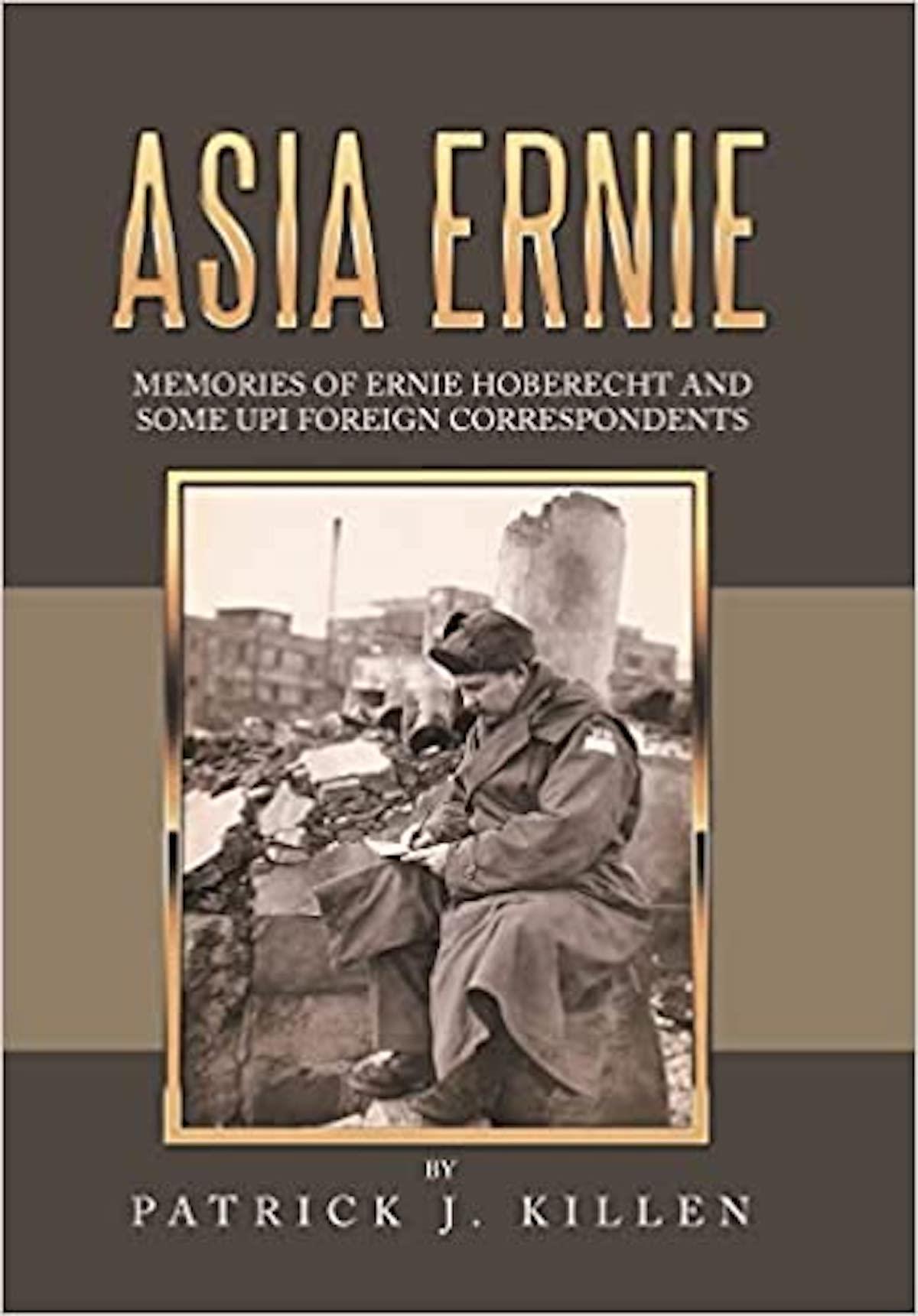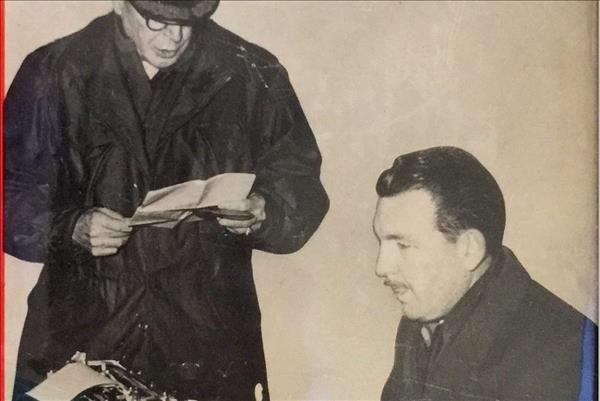
Leak may've saved Taiwan from '50 Communist invasion
Asia Ernie , Patrick J. Killen's just-published collection of stories and memories of the exhilarating doings of Earnest Hoberecht, good old boy and larger-than-life war correspondent for United Press, stationed in Asia 1945-1988, is part modern history, part legend. Killen reveals some secrets about General Douglas MacArthur, of whom Ernie was a confidant. He tells of Ernie's four wives, one a part-Asian beauty, and his efforts to keep afloat a major international news service. Below, Asia Times publishes Chapter 8:“How Ernie helped save Taiwan for the Nationalist Chinese” – a timely reminder of an important historical event that continues to make waves.
In January 1950, Ernie Hoberecht, writing under a Tokyo (UP) dateline, reported that a secret State Department directive advised US diplomats that Formosa, the interim seat of the Nationalist China government, had“no significance” to the United States. Its loss to the Chinese Communists 'was to be anticipated.'”
The story by Hoberecht (pronounced Ho-bright) set off a storm of protest in Washington by Republican congressmen, who were strong supporters of the Chiang Kai-shek government and clamored for US military protection.
Formosa was the name Portuguese explorers gave to a small group of islands, the largest of which was Taiwan, 110 miles off the northeast coast of China. Taiwan was the new name collectively applied to the group. The Nationalists fled to the island group in 1948 after losing the mainland to Mao Tse-tung's Communist forces.
Two days after Hoberecht's story received wide play, President Harry Truman said at a news conference that the United States would not arm the Nationalists or defend Taiwan against attack by the Communists. Senate Republican leader Kenneth S. Wherry called Truman's statement a“Munich Day for the United States – the day of complete. abject surrender to the Red Communists … by the President.”
In Japan, General Douglas MacArthur ordered the US Army to investigate Hoberecht's story and find who gave him the secret directive that was issued by the State Department's Public Affairs Policy Advisory Staff, dated December 23, 1949, and sent to U.S. diplomats abroad.
Military investigators went after Hoberecht and other reporters in Tokyo. Hoberecht was questioned for 10 minutes and would not reveal his source. Ernie insisted,“I have nothing to say.”
Tom Lambert of the Associated Press was also questioned. He said he had seen the document but would not talk about its source.
At the International News Service, bureau chief Howard Handleman said, no, he had not seen the document. He said another INS correspondent, Bob Horiguchi, had but decided not to use the story.
The Hoberecht story was widely printed in the United States. So were the follow-up AP stories on the investigation. The AP stories prominently mentioned Earnest Hoberecht of the United Press as the one“who first published the story on the document,” an unusual admission by a rival news agency.

Cover image: courtesy Patrick J. Killen
It is quite likely that General MacArthur was the source of the leak. He was known to oppose Washington's decision to write off Taiwan, and he often briefed the US news services on his views.
Later that year, after Communist Chinese troops backed North Korea's invasion of South Korea, the United States switched policy and said it would protect Taiwan from any attack from the mainland.
Hoberecht's contention was that he saved Taiwan from the Communists. As a result, he said, he always had ready access to the Nationalist Chinese, including their leader, Chiang Kai-shek.
Pat Killen grew up in Santa Monica, California, and graduated from Colorado College and UCLA. After service in the Navy, he joined United Press International and spent 30 years reporting from the United States, Pakistan, India, Singapore, Malaysia and the Philippines. He was UPI's day news editor in Washington DC in 1987 when he left to take a job in Japan. There he worked for Market News, the Daily Yomiuri and Nikkei Weekly and finally Kikkoman Corporation. He retired in 2004 and moved to Dallas with his Korean wife and their daughter. Asia Ernie is his first book, which he has published at age 92. Regarding this segment's sourcing, he tells us,“Hoberecht's story came from news clips and Hoberecht's interview at his home in Watonga, Oklahoma, with Japan Newspaper and Editors Association (Nihon Shimbun Kyokai) in the 1980s. I found the text of the interview among Hoberecht's memorabilia in the shed of his daughter's house in Tulsa.”

Legal Disclaimer:
MENAFN provides the
information “as is” without warranty of any kind. We do not accept
any responsibility or liability for the accuracy, content, images,
videos, licenses, completeness, legality, or reliability of the information
contained in this article. If you have any complaints or copyright
issues related to this article, kindly contact the provider above.


















Comments
No comment